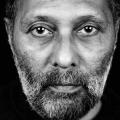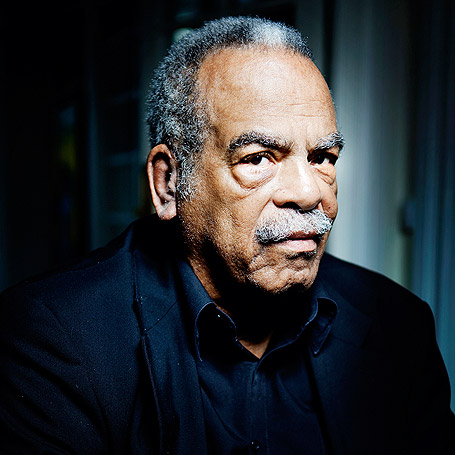132. French Creolizing: Edouard Glissant and the Créolité Movement
Poet, novelist, playwright and philosopher Edouard Glissant, his theory of "creolization", and the Creolists who were influence by him.
Themes:
• J. Bernabé, P. Chamoiseau, and R. Confiant, Éloge de la Créolité / In Praise of Creoleness, trans. M.B. Taleb-Khyar (Paris: 1993).
• J. Bernabé, P. Chamoiseau, R. Confiant, and L. Taylor, "Créolité Bites," Transition (1997): 124-161.
• M. Condé, "Order, Disorder, Freedom, and the West Indian Writer," Yale French Studies 83 (1993): 121-135.
• E. Glissant, Soleil de la conscience (Paris: 1956). Translated as Sun of Consciousness, trans. Nathanael (New York: 2020).
• E. Glissant, "Le romancier noir et son peuple," Présence Africaine 16 (1957): 26-31.
• E. Glissant, L'Intention poétique (Paris: 1969). Translated as Poetic Intention, trans. N. Stephens and A. Malena (Callicoon: 2010).
• E. Glissant, Le discours antillais (Paris: 1981). Partially translated as Caribbean Discourse: Selected Essays, trans. J.M. Dash (Charlottesville: 1989).
• E. Glissant, Poétique de la Relation (Paris: 1990). Translated as Poetics of Relation, trans. B. Wing (Ann Arbor: 1997).
• E. Glissant, "Creolization in the Making of the Americas," in V.L. Hyatt and R. Nettleford (eds), Race, Discourse, and the Origin of the Americas: A New World View (Washington, D.C.: 1995).
• E. Glissant, Introduction à une poétique du divers (Paris: 1996). Translated as Introduction to a Poetics of Diversity (Liverpool: 2020).
• E. Glissant, Traité du Tout-Monde (Paris: 1997). Translated as Treatise on the Whole-World, trans. C. Britton (Liverpool: 2020).
• E. Glissant, Une nouvelle région du monde (Paris: 2006). Translated as A New Region of the World: Aesthetics I (Liverpool: 2023).
• E. Glissant, Philosophie de la Relation (Paris: 2009).
• E. Glissant, L'Imaginaire des langues : Entretiens avec Lise Gauvin (1991-2009) (Paris: 2010).
***
• C.M. Britton, Edouard Glissant and Postcolonial Theory: Strategies of Language and Resistance (Charlottesville: 1999).
• J.M. Dash, Edouard Glissant (Cambridge: 1995).
• J. Drabinski and M. Parham (eds), Theorizing Glissant: Sites and Citations (London: 2015).
• C. Kullberg, The Poetics of Ethnography in Martinican Narratives: Exploring the Self and the Environment (Charlottesville: 2013).
• S.K. Lewis, Race, Culture, and Identity: Francophone Caribbean and West African Literature from Négritude to Créolité (Lanham: 2006).
• N. Nesbitt, Caribbean Critique: Antillean Critical Theory from Toussaint to Glissant (Liverpool: 2013).
• M. Perina, "Beyond Négritude and Créolité: The Ongoing Creolization of Identities," The CLR James Journal 15 (2009): 67-91.
• M. Priam, "Beyond "The Drama of Consciousness" and Against the "Drama of Manifesto": Poetic License and the Creolist Discourse," Research in African Literatures 44 (2013): 19-35.
• D. Radford, Edouard Glissant (Paris: 1980).
• N. Roberts, Freedom as Marronage (Chicago: 2015), ch. 5.
• K.F. Sealey, Creolizing the Nation (Evanston: 2020).
• J. Suk, Postcolonial Paradoxes in French Caribbean Writing: Césaire, Glissant, Condé (Oxford: 2001).
• M. Wiedorn, Think Like an Archipelago: Paradox in the Work of Edouard Glissant (Albany: 2018).






Comments
Upload date
8th of October huh? I guess we aren't above historical revisionism when doing philosophy haha (not being serious to be clear)
In reply to Upload date by Andrew
Upoad date
I was wondering if anyone would notice that! I actually only did that so that on the front page, it would appear in the "right" order i.e. alternating with Reformation episodes, so it needs to have an upload date prior to the one on British scholasticism.
On a more serious comment…
On a more serious comment after listening, I am a bit confused when he talks about the western concept of capital B Being itself, well, being the cause of absolutism. While I get the idea he is getting at (this is being, everything else is invalid or something along those lines), I find it hard to swallow, primarily because I am sceptical of tying this or that single idea as being the determinate factor in so much history. There are two other issues I have though even if I was to accept that:
1. I don't believe it was only the west to tackle what Being actually is. While maybe not as forefront as Parmenides made it, I think India did explore that issue as well, just maybe as tangled up with other topics (I am thinking of for example Nyaya and their acceptance of us perceiving absences, or just everything about Advaita Vedanta, just maybe more from a phenomenological angle (speaking of which I am surprised Heidegger wasn't brought. This idea seems very much related to Heidegger's works)).
2. Does the concept of Being itself necessarily lead to absolutism? I feel like, especially with the "analog view" or "gradations view" of Being, that some leeway could be allowed. Then again, that still has the idea of "perfect Being" in it, so not too much leeway than a "digital view" of being. Or maybe I just don't know what I am talking about haha.
In reply to On a more serious comment… by Andrew
Being
I can understand your skeptical response, but just to contextualize a little: I may be wrong, but I take it that Glissant is reflecting a tradition of thought that goes back to Heidegger. The critique of an "absolute" conception of being/Being is fundamental to this tradition and I think that particular aspect is in fact not so original, the original thing is tying the critique of Being to these ideas of cultural recombination and flux, so all the stuff about creolization. Thus I would just appreciate that Glissant saw the relevance of Heideggerian (anti-)metaphysics to the themes we've been following in the series, the question of whether an absolutist conception of Being is distinctively Western, fundamentally problematic, etc probably need to be litigated by engaging with Heidegger and the 20th c tradition reacting to his thought.
Add new comment